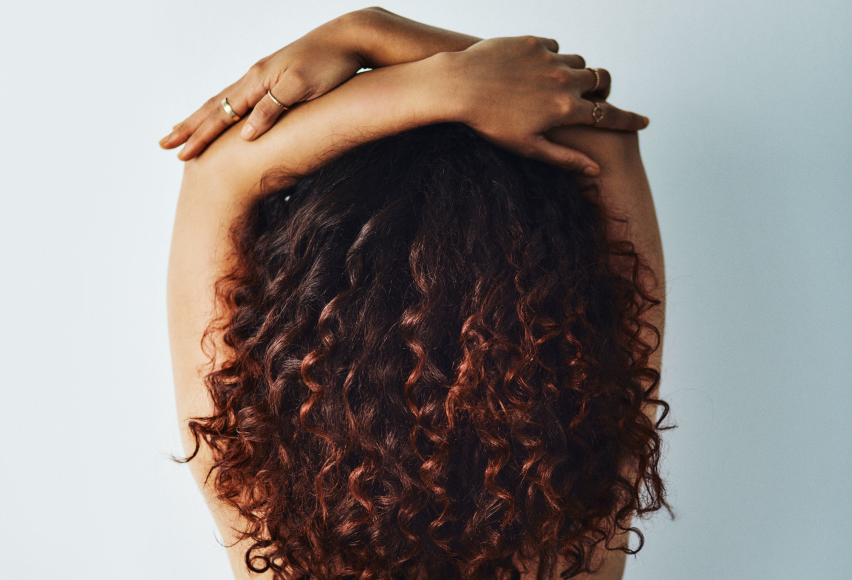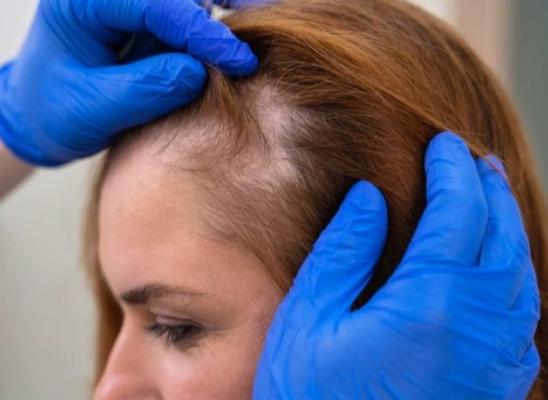Why Do I Pull My Hair? Understanding the Possible Causes of Trichotillomania

Online test
Find out the severity of your symptoms with this free online test
If you’ve ever found yourself repeatedly pulling out your hair, whether from your scalp, eyebrows, or elsewhere, you might be wondering, “Why do I do this?” You’re not alone. Repetitive hair pulling is often linked to a condition known as trichotillomania, commonly referred to as “trich” or hair pulling. It’s a mental health disorder characterized by the urge to pull out one’s hair, resulting in noticeable hair loss. It can affect anyone but most often emerges in childhood or adolescence. Trich creates significant emotional distress and can leave you feeling confused, isolated, or even ashamed, especially if you find it hard to stop.
It’s important to know that trichotillomania isn’t about vanity or simply a “bad habit.” For many people, the act of pulling provides temporary relief from distressing feelings or stress or even boredom. Sometimes, people pull without even realizing it.
Just where does trichotillomania come from and why is it so hard to manage? These are important questions. Trich is a complex disorder and while there’s still much to learn about it, researchers have discovered quite a bit about why trich develops and how to manage it.
Possible Causes of Trichotillomania
There’s no single cause of trichotillomania. It’s a complex condition with roots in biological, psychological, and environmental factors.
Here are a few that researchers and clinicians believe may play a role:
Genetics and Family History
Some studies suggest that trichotillomania may have a familial connection. If a parent or close relative has struggled with trichotillomania or another form of obsessive-compulsive disorder (OCD), anxiety, or BFRB, it may increase your likelihood of developing the condition. This doesn’t mean it’s guaranteed to happen, but it does suggest a genetic or biological vulnerability might be involved.
Brain Chemistry and Neurology
Trichotillomania has been linked to differences in brain structure and function, especially in areas related to impulse control, emotional regulation, and habit formation. Some research indicates that levels of certain brain chemicals, such as dopamine and serotonin, may play a role in the urge to pull. This supports the idea that trich isn’t a matter of willpower but rather a process rooted in how the brain processes stress, urges, and relief.
Emotional Triggers
Many people with trich notice a connection between strong emotions and hair pulling. Stress, anxiety, boredom, loneliness, frustration, or even excitement can trigger the urge. Research has found sub-types of trich reflecting possible factors in why people pull and how. For some, hair pulling offers a temporary sense of control or calm. For others, it provides a kind of self-soothing, like scratching an itch or releasing pressure. Emotional dysregulation is thought to be a key factor in hair pulling.
Sensory Sensitivity
Sensory phenomena are commonly experienced with hair pulling. While not considered a sensory processing disorder, there is substantial anecdotal evidence that tactile sensations can fuel the urge to pull. Some are drawn to the feeling of the root, the coarseness of a strand, or the act of running fingers through hair. Others are drawn to certain textures, such as coarse, stubbly, or uneven hairs, which can lead them to unconsciously seek out and remove these strands. The sensory experience of pulling can be deeply satisfying and difficult to resist.
Trauma or Stressful Life Events
While hair pulling doesn’t always result from experiencing trauma, research has found a correlation between experiencing trauma or stressful life events and the development of hair pulling. It is thought that hair pulling may be a way of coping with overwhelming feelings, even if those feelings aren’t fully conscious.
It Isn’t Your Fault
When you’re struggling to stop pulling, it’s easy to blame yourself. It’s important to remember that you didn’t do anything to cause it, and trich is not something you can simply stop. It is not a reflection of some personality flaw or lack of discipline. It is a complex condition that can arise for any number of reasons, some that science has yet to fully identify.
The good news is, there are effective treatments to help you manage your hair pulling.
What Helps
While trich is considered a chronic condition, there are treatments that can reduce the frequency and intensity of hair pulling. Cognitive Behavioral Therapy (CBT), especially a form of CBT called Habit Reversal Training (HRT), is considered the gold standard for treating trich. Therapy can help you learn to recognize patterns and find healthy alternative ways of coping.
What about medication? There are currently no medications specifically used to treat hair pulling. However, some medications that help with symptoms like impulsivity, depression, or anxiety that often co-occur are sometimes prescribed and may help reduce pulling.
The Takeaway
Just why someone starts pulling their hair isn’t always clear. Understanding that trich is a real condition and not just a “habit” is an important first step to seeking help. With the right support, some self-compassion, and finding tools that work for you, you can learn to manage your trich and find healing.
Not sure where to start? You don’t have to figure it out alone. A therapist who specializes in treating hair pulling can help. At Trichstop, we have a team of experienced therapists ready to help you take the next step towards healing. And online therapy makes getting help comfortable and convenient. When you’re ready, there is help and hope waiting for you.
References
1. Zhang, J., & Grant, J. E. (2022). Significance of family history in understanding and subtyping trichotillomania. Comprehensive Psychiatry, 119, 152349. https://www.sciencedirect.com/science/article/pii/S0010440X22000554
2. Grant, J. E., Peris, T. S., Ricketts, E. J., Bethlehem, R. A. I., Chamberlain, S. R., O'Neill, J., Scharf, J. M., Dougherty, D. D., Deckersbach, T., Woods, D. W., Piacentini, J., & Keuthen, N. J. (2022). Reward processing in trichotillomania and skin picking disorder. Brain imaging and behavior, 16(2), 547–556. https://doi.org/10.1007/s11682-021-00533-5
3. Grant, J. E., Peris, T. S., Ricketts, E. J., Lochner, C., Steins, D. J., Chamberlain, S. R., … Keuthin, N. J. (2020). Identifying subtypes of trichotillomania (hair pulling disorder) and excoriation (skin picking) disorder using mixture modeling in a multicenter sample. Journal of Psychiatric Research, in press. Retrieved from https://www.sciencedirect.com/science/article/pii/S0022395620310578?via%3Dihub
4. Falkenstein, M. J., Conelea, C. A., Garner, L. E., & Haaga, D. A. (2018). Sensory over-responsivity in trichotillomania (hair-pulling disorder). Psychiatry Research, 260, 207-218. https://www.sciencedirect.com/science/article/abs/pii/S0165178116322041?via%3Dihub
5. Özten, E., Sayar, G. H., Eryılmaz, G., Kağan, G., Işık, S., & Karamustafalıoğlu, O. (2015). The relationship of psychological trauma with trichotillomania and skin picking. Neuropsychiatric disease and treatment, 11, 1203–1210. https://www.ncbi.nlm.nih.gov/pmc/articles/PMC4440428/#b23-ndt-11-1203
6. Hair-pulling disorder (Trichotillomania) - Mental health disorders - MSD manual consumer version. (2023, July). MSD Manual Consumer Version. https://www.msdmanuals.com/home/mental-health-disorders/obsessive-compulsive-and-related-disorders/hair-pulling-disorder-trichotillomania#Diagnosis_v11723277
Online test
Find out the severity of your symptoms with this free online test
Start your journey with TrichStop
Take control of your life and find freedom from hair pulling through professional therapy and evidence-based behavioral techniques.
Start Now



